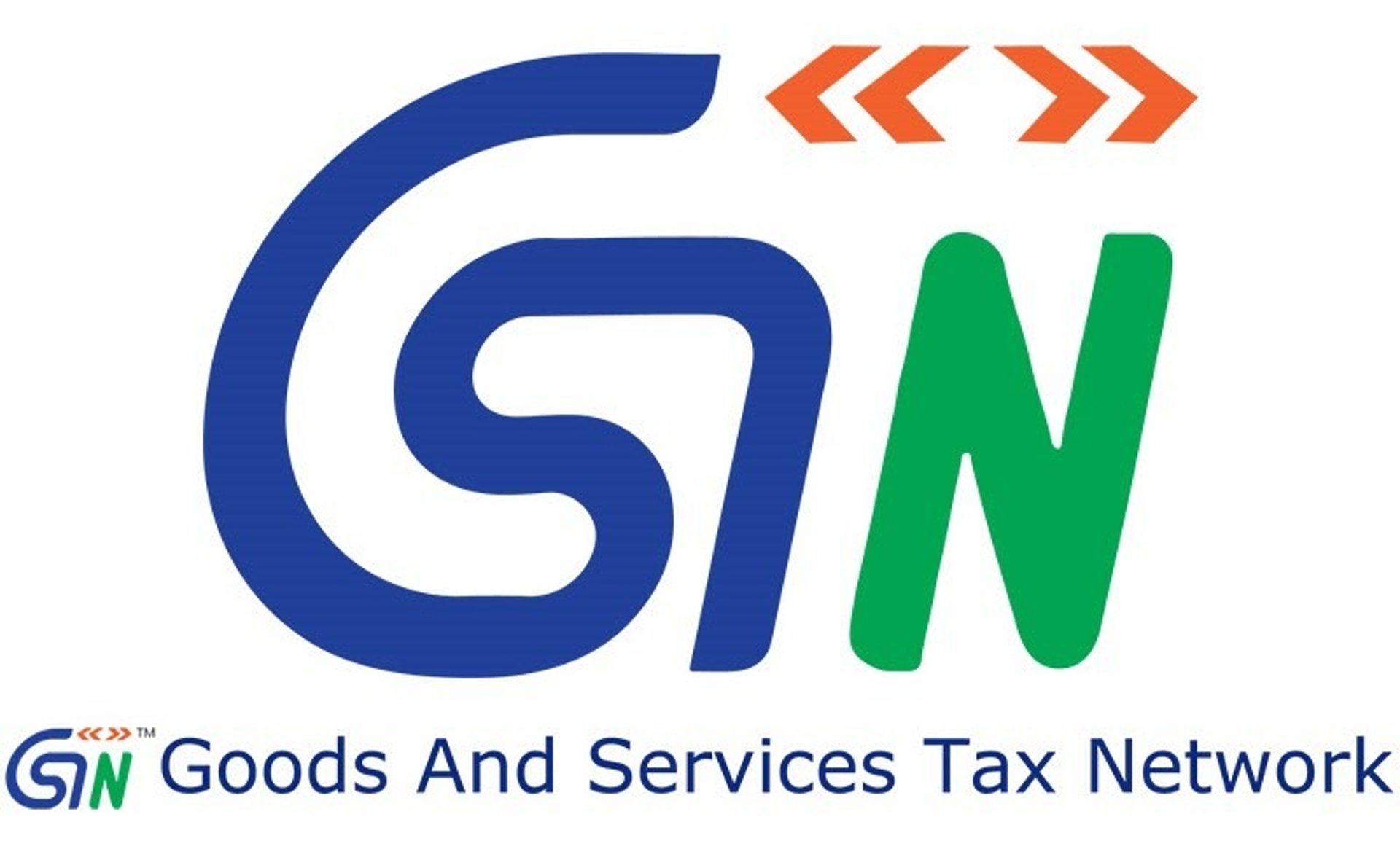
GST Related Services
Below is a comprehensive list of the GST services we provide.
We specialize in tax filings, advisory, and compliance solutions tailored to your needs.
Our goal is to ensure seamless and efficient tax management for your business.

A summary of the new GST registration process under the applicable provisions is as follows:
Persons Liable for Registration:
Businesses whose aggregate turnover exceeds ₹20 lakhs (₹10 lakhs for special category states) in a financial year are required to register under GST.
Specific categories like casual taxable persons, non-resident taxable persons, e-commerce operators, etc., must register regardless of turnover.
Exemptions:
Persons engaged exclusively in the supply of exempt goods/services or those covered under reverse charge mechanism are not required to register.
Procedure:
Application Submission: Through Form GST REG-01 on the GST portal.
Verification: Details are verified using PAN, Aadhaar authentication, and additional documents.
Approval: Upon successful verification, the registration certificate in Form GST REG-06 is issued.
Mandatory Registration:
Certain businesses, such as inter-state suppliers, persons liable under reverse charge, agents, input service distributors, and others specified under Section 24, require compulsory registration.
Time Frame:
Registration should be completed within 30 days of becoming liable.
Special Provisions:
Casual taxable persons and non-residents need to register at least five days prior to commencing business.
Changes & Cancellations:
Amendments, suspension, and cancellation of registrations can be processed online as per the laid-down procedures in the GST law.
GST Registration

GSTR 1 Overview:
GSTR-1 is a crucial return under GST, where registered taxpayers report details of outward supplies of goods or services. It captures information on sales, exports, and amendments to previous filings, helping in reconciliation and compliance. The data filed in GSTR-1 is auto-populated into the recipients' GSTR-2A/2B, facilitating input tax credit (ITC) claims.
Who Needs to File?
Registered taxable persons, except:
Input Service Distributors (ISD)
Composition taxpayers
Non-resident taxable persons
Taxpayers liable to deduct/collect tax at source
Filing Frequency:
Monthly Filing: Applicable for taxpayers with an annual aggregate turnover exceeding ₹5 crore.
Quarterly Filing (QRMP Scheme): Optional for taxpayers with turnover up to ₹5 crore.
Due Dates:
Monthly Filers: 11th of the subsequent month.
Quarterly Filers: 13th of the month following the quarter.
Details to be Reported:
Invoice-wise Supplies:
Supplies made to registered persons (B2B transactions).
Supplies made to unregistered persons above ₹2.5 lakh (Inter-state B2C transactions).
Aggregate Details:
Supplies made to unregistered persons below ₹2.5 lakh (B2C transactions within the state).
Export sales (with or without payment of tax).
Debit/Credit Notes:
Adjustments to previously filed invoices.
Advances Received:
Reporting of tax on advances for services.
HSN Summary:
Summary of goods/services supplied, based on HSN/SAC codes.
Amendments:
Corrections to previously filed returns.
Penalties for Non-Filing:
Late filing attracts a late fee of ₹50 per day (₹20 for nil returns) up to the maximum cap.
Non-compliance can lead to restrictions on filing subsequent returns and blocking of ITC.
GSTR-1 & 3B Filing
GSTR 3B Overview:
GSTR-3B is a self-declaration return under GST that taxpayers must file monthly or quarterly. It summarizes the inward and outward supplies, provides details of tax liability, input tax credit (ITC), and tax payment, ensuring compliance and timely payment of GST.
Who Needs to File?
Mandatory Filing: All registered taxpayers except:
Composition scheme taxpayers
Non-resident taxable persons
Input Service Distributors (ISD)
Taxpayers liable to deduct/collect tax at source (TDS/TCS)
Filing Frequency and Due Dates:
Monthly Filing: Taxpayers with annual aggregate turnover exceeding ₹5 crore must file monthly.
Due Date: 20th of the following month.
Quarterly Filing (QRMP Scheme): Taxpayers with turnover up to ₹5 crore can opt to file quarterly.
Due Date: 22nd or 24th of the month following the quarter (based on state).
Key Components of GSTR-3B:
Outward Supplies and Tax Liability:
Report taxable outward supplies (both inter-state and intra-state).
Include exempt, nil-rated, and non-GST supplies.
Input Tax Credit (ITC):
Declare eligible ITC on inward supplies, categorized as IGST, CGST, SGST, and cess.
Report ITC reversals and net ITC available.
Tax Payable and Tax Paid:
Self-assessment of tax liability and payment through ITC utilization or cash ledger.
Interest and Late Fees:
Declare and pay any interest for late tax payments and applicable late fees.
Exempt/Nil-Rated/Non-GST Supplies:
Provide details of outward supplies that are exempt, nil-rated, or outside GST purview.
Details of TDS/TCS Credit:
Report any TDS/TCS credits available and utilized.
Late Fees and Penalties:
Late Fees:
₹50 per day (₹25 each for CGST and SGST) for returns with tax liability.
₹20 per day (₹10 each for CGST and SGST) for nil returns.
Interest:
18% per annum for delayed tax payments.

The GST annual return is a comprehensive summary of a taxpayer’s activities over a financial year. It consolidates monthly or quarterly returns filed throughout the year and ensures compliance with GST regulations. Below is a detailed breakdown of its filing process, requirements, and related provisions:
1. Objective
The annual return provides an overview of:
Inward and outward supplies.
Tax paid and adjusted.
Input Tax Credit (ITC) claimed.
Refunds and demands raised during the financial year.
2. Applicable Forms
GSTR-9: For regular taxpayers.
GSTR-9A: For composition taxpayers (discontinued post-2020).
GSTR-9C: For taxpayers requiring audit, containing a reconciliation statement.
3. Who Needs to File?
All registered taxpayers under GST, except:
Input Service Distributors.
Casual taxable persons.
Non-resident taxable persons.
Those paying TDS under GST.
4. Key Components of the Return
Basic Details: Includes GSTIN, legal name, and trade name.
Details of Outward and Inward Supplies: Consolidated data of taxable and exempt supplies.
Tax Paid: Details on taxes paid under various heads (CGST, SGST, IGST, Cess).
ITC Claimed and Reversed: Data on ITC availed and reversals, segregated by types of supplies.
Demand and Refund: Details of demands raised or refunds claimed during the year.
Late Fees and Other Penalties: If applicable.
5. Reconciliation and Audits
Taxpayers with an annual turnover exceeding ₹5 crore must submit GSTR-9C, which reconciles the returns with audited financial statements.
GSTR-9C needs to be certified by a Chartered Accountant or Cost Accountant.
6. Due Dates and Late Filing
Deadline: Generally December 31 following the financial year.
Penalty for Late Filing:
₹200 per day of delay (₹100 CGST + ₹100 SGST/UTGST), subject to a maximum of 0.25% of turnover in the relevant state/UT.
7. Recent Amendments
Certain relaxations and exemptions have been introduced for smaller taxpayers.
Waiver of late fees in specific cases of compliance.
8. Audit and Certification
For certain categories of taxpayers, annual returns require a reconciliation statement (GSTR-9C) that matches the returns filed with the audited accounts.
9. Amendments and Rectifications
Amendments to previous year's data can only be made up to specified dates in subsequent returns; they cannot be revised directly through the annual return.
10. Significance
Facilitates the government's tax audit processes.
Ensures transparency and compliance by summarizing all GST transactions.
Proper and timely filing of GST annual returns ensures compliance and helps avoid penalties or scrutiny by tax authorities.
GST Annual Returns Filing

Overview:
Under the GST framework, the concept of filing revised returns does not exist. Instead, any errors or omissions in previously filed returns must be corrected through amendments in subsequent returns. This ensures that businesses can rectify their mistakes and stay compliant with GST laws.
Steps for Rectifying Errors in GST Returns:
Identify the Error:
Determine the specific errors or omissions in previously filed returns, such as incorrect invoice details, tax amounts, or missing entries.
Correcting the Error:
Amend the details in subsequent returns. For example:
GSTR-1 (Outward Supplies): Errors in GSTR-1 can be corrected in the subsequent GSTR-1 filing under the amendment section for the respective tax period.
GSTR-3B (Tax Payment and ITC): Adjustments for errors in tax payment or ITC claimed can be made in the subsequent GSTR-3B filing.
Amendments Allowed:
Amendments can include:
Updating incorrect invoice details.
Modifying taxable value or tax amount.
Adding missing invoices.
Note: Amendments cannot change the filing status of the original return (e.g., a filed return cannot be marked as nil).
Time Limit for Amendments:
Corrections must be made by:
The due date of filing GSTR-3B for September of the following financial year, or
The date of filing the annual return (GSTR-9), whichever is earlier.
Specific Scenarios for Revisions:
Error in Outward Supplies (GSTR-1):
Access the "Amendment of Outward Supplies" section in subsequent GSTR-1 filings.
Correct or update invoice-level details.
Error in ITC Claims (GSTR-3B):
Rectify ITC claims in the ITC section of the next GSTR-3B filing.
Ensure reconciliation with GSTR-2B to avoid mismatches.
Error in Tax Liability (GSTR-3B):
Adjust tax liability in the subsequent GSTR-3B.
If excess tax was paid, claim a refund or adjust it against future liabilities.
Annual Returns (GSTR-9):
Errors not corrected during the financial year can be disclosed in GSTR-9 to provide a consolidated view.
Points to Note:
Penalties and Interest:
Any shortfall in tax due to errors attracts interest at 18% per annum.
Penalties may be imposed for non-compliance.
No Negative Liability:
Excess tax paid cannot be reduced directly in GSTR-3B; instead, a refund must be claimed.
Reconciliation:
Ensure reconciliation of GSTR-1, GSTR-3B, and GSTR-2B to identify and address discrepancies effectively.
Challenges in Revising GST Returns:
Limited time frame for corrections.
Complexities in reconciling data between different returns.
Risk of audit or notices due to frequent amendments.
Conclusion:
Although GST does not allow direct revisions of filed returns, taxpayers can rectify errors through amendments in subsequent filings. Timely and accurate amendments are essential to maintain compliance, avoid penalties, and ensure smooth GST processes. Regular reconciliation and review of returns help in minimizing errors and staying aligned with GST requirements.
Revised Return Filing

GST Notice Response
Receiving a GST notice from tax authorities can be stressful, but timely and accurate responses can resolve issues effectively. GST notices are issued for various reasons, including mismatched returns, delayed filings, excess ITC claims, or tax discrepancies. The process of responding to a GST notice begins with thoroughly analyzing the notice and understanding the reasons cited by the authorities. Identifying the type of notice, such as scrutiny, demand, or audit-related, is essential as it determines the appropriate course of action.
Once the notice is reviewed, gather all supporting documents, such as invoices, returns, reconciliations, and payment records. Draft a response clearly addressing each point mentioned in the notice, providing evidence to support your claims. It is critical to ensure that the reply is filed within the stipulated timeline mentioned in the notice to avoid penalties or escalations. Use the GST portal to upload the response, along with any required documentation, ensuring it aligns with the format specified by the authorities.
In cases where the notice involves complex issues, such as significant tax demands or allegations of non-compliance, professional assistance can be invaluable. Experts can help interpret the legal implications of the notice, draft precise responses, and represent you during hearings or audits, ensuring your case is presented effectively.
At Advizin, we specialize in GST compliance and offer end-to-end services to handle GST notices. From analyzing the notice and drafting responses to providing representation before authorities, our experienced team ensures that your GST matters are resolved efficiently. Avoid unnecessary stress and penalties—contact us for expert assistance in managing GST notices and ensuring compliance with tax regulations. Let us take care of your GST obligations while you focus on your business!
+91 9885904075
Contact Us
Our Services
Quick Links
PAN Related Services
Income Tax Services
GST Related Services
Labour Law Services
International Taxation
Book keeping Services
Payroll Compliance and processing Services
Business Process Transformation Services
Business Process Review and Gap Analysis
Preparation of Financial Statements
Sole Proprietorship registration
Partnership Registration
LLP Incorporation
Company Incorporation
Filing of Annual Returns And financial Statements
Maintenance of Statutory Registers and Records
Compliance with Board and Shareholder Meetings
Assistance with Dematerialization of Securities
Closure of Companies and LLPs
MSME Registration and Compliance
Others
Stock Audit Facilitations
Payroll Audit Facilitations
Tax Audit Facilitations
Mergers and Acquisitions Advisory
Due Diligence Reports
Financial Modelling
Valuations
Corporate Finance Advisory
Legal Drafting and Advisory
Secretarial Compliances
Business Certifications
Liaisoning Services
Copyright © 2025 Advizin private limited
